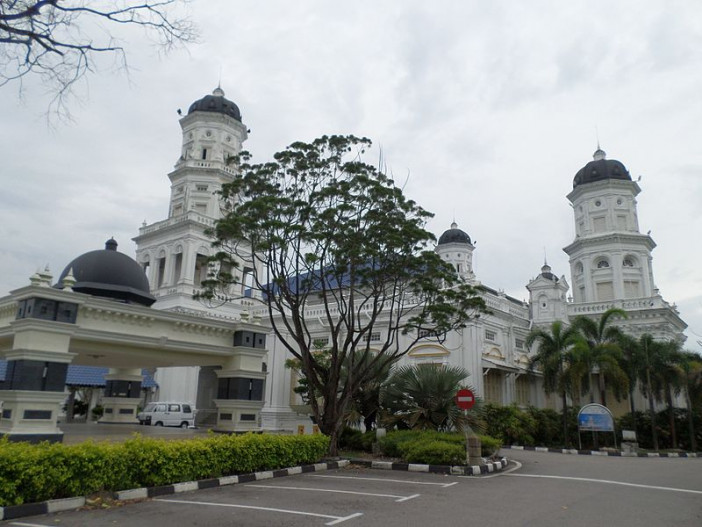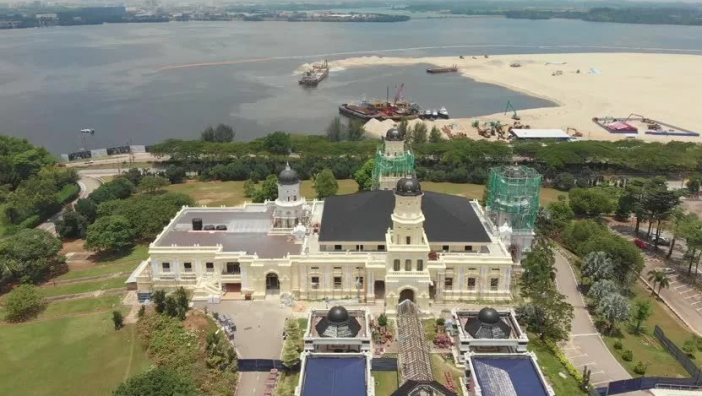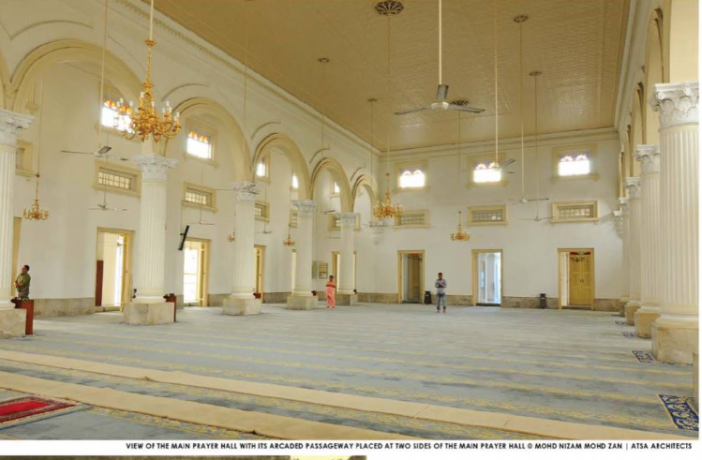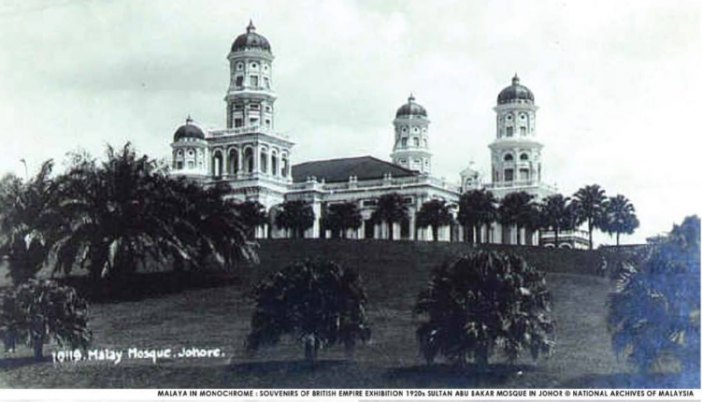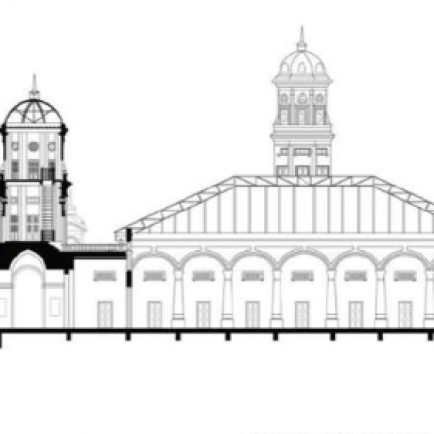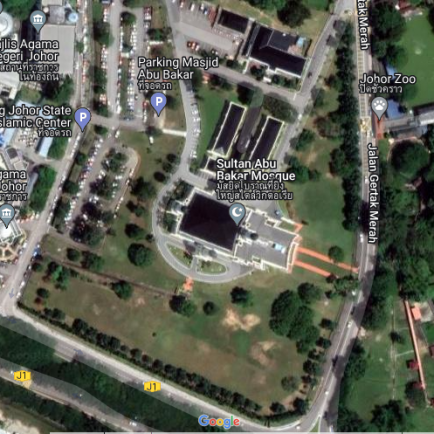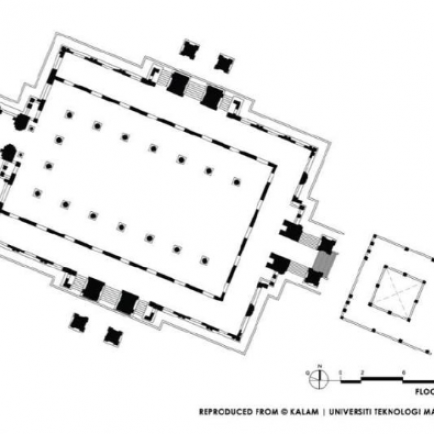Sultan Abu Bakar State Mosque
History
The history of the establishment of this mosque can be traced back to the famous Sultan of Johor, Sultan Abu Bakar bin Temanggung Daeng Ibrahim (1862-1895).
In the era of Abu Bakar's leadership, Johor experienced very rapid economic development. The people live quite prosperously.
The government was able to construct various magnificent and large buildings, including the Sultan Abu Bakar Mosque, whose construction cost around 400 thousand Malaysian ringgit.
Another evidence that shows the glories of the Sultan Abu Bakar period can be seen from the building that still stands majestically today and is used as the Sultan Abu Bakar Museum.
The construction of this mosque took place after the capital of the Sultanate of Johor was moved from Teluk Belangga in Singapore, to Tanjung Puteri, a fishing village which was later named Johor Baru by Sultan Abu Bakar.
This transfer occurred in 1866 and along with it, various buildings were also built to complement the needs as the center of the new kingdom.
Urban and Architectural
The design of the mosque additionally incorporates a few Moorish design components, beside a few minor Malay impact. Tuan Haji Mohamed Arif bin Punak was administered by the Johor government build Dato’ Yahya canister Awalluddin who communicated the Anglophile opinions of Sultan Ibrahim ibni Sultan Abu Bakar who was the Sultan of Johor at that time. This Anglophile impact can encourage be seen within the British engineering impacts not as it were on the Sultan Abu Bakar State Mosque but moreover in a few others government and royal residence buildings in Johor developed amid the same period. The mosque sits on best of a unmistakable slope, ignoring the Straits of Johor. The mosque is named for Sultan Abu Bakar, the father of Sultan Ibrahim who requested its development.
Description
the Sultan Abu Bakar Mosque is one of the historical heritages protected by the Kingdom of Malaysia. As a tourist location, this mosque is open every day for tourists to visit, from 09.00 to 16.00 free of charge, unless Friday is deliberately closed.
The location of this mosque is very strategic on a hill on Lido Beach facing south of Tebrau which separates mainland Malaysia from Singapore. From the backyard of this mosque, Singapore is clearly visible.
References
https://en.wikipedia.org/wiki/Sultan_Abu_Bakar_State_Mosque
https://signaturefoodplace.wordpress.com/2014/08/13/sultan-abu-bakar-mosque/
https://www.republika.co.id/berita/dunia-islam/islam-nusantara/17/05/29/oqp9yu313-masjid-sultan-abu-bakar-warisan-kegemilangan-kesultanan-johor
Details
Location
Johor Bahru, Johor, Malaysia
Worshippers
3000
Owners
Sultan Abu Bakar
Architect Name
Year of Build
1900
Area
1700 sq.m
Drawings
Map
History
The history of the establishment of this mosque can be traced back to the famous Sultan of Johor, Sultan Abu Bakar bin Temanggung Daeng Ibrahim (1862-1895).
In the era of Abu Bakar's leadership, Johor experienced very rapid economic development. The people live quite prosperously.
The government was able to construct various magnificent and large buildings, including the Sultan Abu Bakar Mosque, whose construction cost around 400 thousand Malaysian ringgit.
Another evidence that shows the glories of the Sultan Abu Bakar period can be seen from the building that still stands majestically today and is used as the Sultan Abu Bakar Museum.
The construction of this mosque took place after the capital of the Sultanate of Johor was moved from Teluk Belangga in Singapore, to Tanjung Puteri, a fishing village which was later named Johor Baru by Sultan Abu Bakar.
This transfer occurred in 1866 and along with it, various buildings were also built to complement the needs as the center of the new kingdom.
Urban and Architectural
The design of the mosque additionally incorporates a few Moorish design components, beside a few minor Malay impact. Tuan Haji Mohamed Arif bin Punak was administered by the Johor government build Dato’ Yahya canister Awalluddin who communicated the Anglophile opinions of Sultan Ibrahim ibni Sultan Abu Bakar who was the Sultan of Johor at that time. This Anglophile impact can encourage be seen within the British engineering impacts not as it were on the Sultan Abu Bakar State Mosque but moreover in a few others government and royal residence buildings in Johor developed amid the same period. The mosque sits on best of a unmistakable slope, ignoring the Straits of Johor. The mosque is named for Sultan Abu Bakar, the father of Sultan Ibrahim who requested its development.
Description
the Sultan Abu Bakar Mosque is one of the historical heritages protected by the Kingdom of Malaysia. As a tourist location, this mosque is open every day for tourists to visit, from 09.00 to 16.00 free of charge, unless Friday is deliberately closed.
The location of this mosque is very strategic on a hill on Lido Beach facing south of Tebrau which separates mainland Malaysia from Singapore. From the backyard of this mosque, Singapore is clearly visible.


